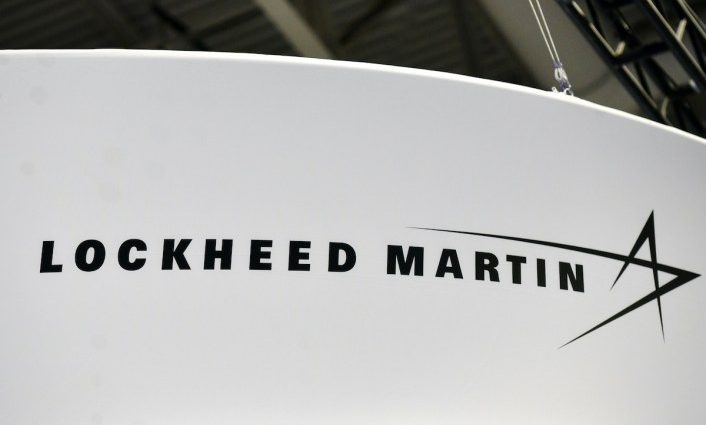China has vowed to sanction Lockheed Martin, the world’s and America’s largest defense contractor, for a fifth time after Washington approved on December 16 a US$300 million arms deal that will link Taiwan’s tactical information system with that of NATO allies.
The new system will help improve Taiwan’s command, control, communications and computer (C4) capabilities and enhance operational readiness to meet current and future threats, according to the Pentagon’s Defense Security Cooperation Agency.
The arms sale was the 12th to Taiwan since US President Joe Biden took office in January 2021.
Beijing has fired four rounds of countermeasures against Lockheed since July 2020, including placing it on an “unreliable entities list,” ordering the defense firm to pay fines equivalent to twice the amount of its arms sales to Taiwan in recent years, and banning the company’s executives and staff from entering China.
After the US government approved Lockheed and Northrop Grumman’s arms sale to Taiwan on August 24 this year, both companies were sanctioned by Beijing on September 15, though the Chinese government did not specify the terms of the curbs at the time.
“It is true that both Lockheed and Northrop Grumman do not have a lot of direct businesses in China. But it does not mean that our sanctions against them are meaningless,” a Shaanxi-based writer using the pen name “Qiaofeng” says in an article. “Their affiliated companies are involved in many fields such as aircraft, energy and electronics in China.”
The writer says the curbs send a message to the international community that China opposes all forms of foreign interference and has the determination to safeguard its sovereignty and territorial integrity.
He says that by sanctioning the US defense contractors, China can set an example for upholding international fairness and justice amid the United States’ blatant violation of international rules.

Military operations
Two Chinese weather balloons were seen crossing the sensitive median line of the Taiwan Strait on December 17, the days after the arms sale announcement, according to the Defense Ministry in Taipei.
“The Chinese communists’ frequent military operations around Taiwan present a serious threat to us,” said the island’s Ministry of National Defense.
The ministry said the new tactical information system will help Taiwan improve its battlefield awareness. It said it expects the sale to “take effect” in one month.
A source told Reuters that Taiwan’s existing Syun A system, which has been in service for more than a decade, cannot easily interface with non-US equipment such as locally made fighter jets. The source said the joint warfare capabilities of Taiwan’s C4 system are inadequate.
The Syun An system is reportedly unable to integrate data from the long-range early-warning radar system situated in the island’s northern mountains.
The system’s downgraded Link 16 tactical data network is also incompatible with non-US equipment, including Taiwan’s Indigenous Defense Fighters, French-made La Fayette-class frigates and Mirage 2000 fighters. Link 16 is a standardized military tactical data link network used by the US and NATO allies.
“China will take resolute and strong measures to safeguard its sovereignty and territorial integrity and take countermeasures against relevant companies involved in arms sales to Taiwan,” said Wang Wenbin, a Chinese Foreign Ministry spokesperson.
“The Taiwan question is entirely China’s internal affair that should not be affected by any foreign interference,” he said. “No matter how many weapons the US provides to the Taiwan region, it will neither change the historic course of China’s reunification, nor weaken the Chinese people’s firm will in safeguarding our national sovereignty and territorial integrity.”
He said the recent US arms sale to Taiwan seriously undermines China’s sovereignty and security interests, harms peace and stability across the Taiwan Strait and sends a wrong message to separatist forces seeking “Taiwan independence.”
“China deplores and strongly opposes this and has made solemn démarches to the US side,” Wang said.
‘Dangerous’ fighter jet intercepts
The Taiwan Strait balloon incidents come about a month after Chinese President Xi Jinping and US President Joe Biden met in San Francisco on November 15 and agreed to increase communications.
The two leaders had an in-depth exchange of views on strategic and overarching issues critical to the direction of China-US relations and on major issues affecting world peace and development. But the leaders reached no new agreements on Taiwan-related issues, according to reports.

Biden reiterated that Washington’s “one-China” policy has not changed and that the US opposes any unilateral changes to the status quo from either side of the Taiwan Strait.
Xi reportedly told the US to stop supporting Taiwanese independence and halt arms sales to the self-governing island, which Beijing considers a renegade province that must be “reunified” with the mainland. The US side said it will continue to support Taiwan’s defense.
Admiral John Aquilino, head of US Indo-Pacific Command, told the media on December 18 that China’s “dangerous” fighter jet intercepts against US aircraft seem to have stopped since the Xi-Biden summit, which he characterized as an “incredibly positive outcome” if sustained.
However, China’s People’s Liberation Army (PLA) continues to launch warplanes across the median line of the Taiwan Strait on a daily basis.
Read: Fractured opposition handing Taiwan’s election to DPP
Follow Jeff Pao on Twitter at @jeffpao3

